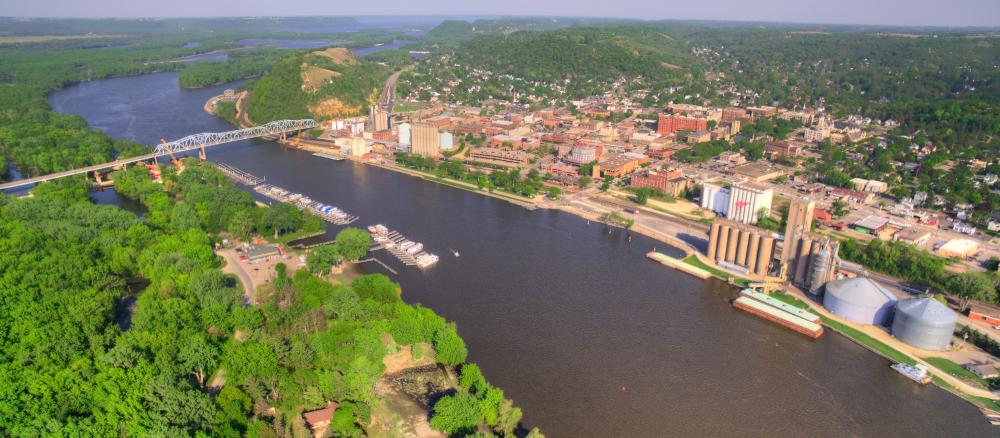The Minnesota Pollution Control Agency (MPCA) announced today a $140,000 grant to the City of Red Wing to study the potential for launching a regional organics recycling program.
The feasibility study will determine the best way to divert an estimated 2,271 tons of organic material, such as food waste and paper products, away from landfills each year. Composting organic materials saves space and reduces greenhouse gas emissions at landfills. The compost produced from the process serves as a nutrient-rich soil additive that can fertilize crops and reduce runoff.
The funding was awarded as part of MPCA’s Greater Minnesota Recycling and Composting Grants, which supports projects that help communities establish best practices to help make local reuse, recycling, or composting programs more efficient and effective. The City of Red Wing provided $47,000 in matching funds, for a total of $187,500.
“As communities across Minnesota seek ways to adapt to and prepare for a changing climate, composting offers a way to realize environmental benefits while reducing the burden on landfills,” said Katrina Kessler, MPCA commissioner. “This grant underscores the commitment of the City of Red Wing’s leadership to seek a more sustainable future that reimagines waste as a useful resource.”
Red Wing is a regional hub for collecting and disposing of garbage and recyclable materials. The City’s Solid Waste Campus serves over 6,000 residential and commercial properties in Red Wing alone, with many more throughout Goodhue County and in residential areas of Farmington and Hastings. A 2020 waste composition study by the city showed that organic materials suitable for composting make up about one third of the waste stream.
The feasibility study will involve a regional audit to determine the sources and volumes of organic materials available. It will also explore potential composting facility locations, methods for collecting organics, permitting requirements, environmental impacts, and a cost impact analysis of collection and processing options. Ultimately, the study will provide recommendations for how to proceed with an environmentally and economically viable source-separated organics diversion program.
“Organic waste generates greenhouse gases in landfills,” said Jeff Schneider, deputy director of public works in Red Wing’s Solid Waste Division. “Composting provides a viable alternative to land disposal. In exploring local options for managing waste types, the City of Red Wing will ensure long-term economic and environmental sustainability for the region’s waste programs.”
As part of the project, the City of Red Wing will look for opportunities to collaborate with regional communities as well as institutions and organizations that produce large amounts organic waste. Possible partners include Red Wing Public Schools, which has worked closely with the City on many collaborative projects to improve the environment, including a 5-megawatt solar garden at the high school. Uneaten cafeteria food and inedible food scraps like vegetable peels could be composted instead of thrown away.
“Implementing a composting program would be a big step toward keeping food waste out of landfills, which constitutes up to 50% of our garbage by weight,” said Jess Pena, nutrition services director for Red Wing Public Schools. “In addition, we see opportunities to use the resulting compost as a natural fertilizer — another win for both the environment and budgets.”
The feasibility study follows a series of other recent efforts by the City of Red Wing to reduce the quantity of solid waste heading to landfills and incinerators and divert more material to recycling facilities. The City previously renovated its material recovery facility into a viable refuse-derived fuel operation to produce energy from discarded material. In 2019, it implemented a curbside single-sort recycling program with the help of a separate MPCA grant. This year, Red Wing’s Bench Street Landfill became part of the MPCA’s Closed Landfill Program, which will ensure it is monitored and maintained over the long term to protect the environment and human health.
